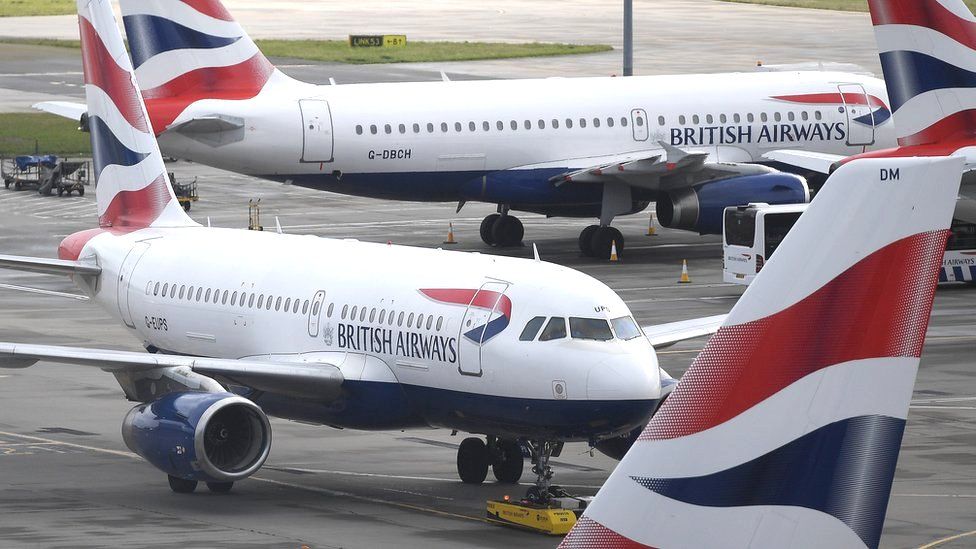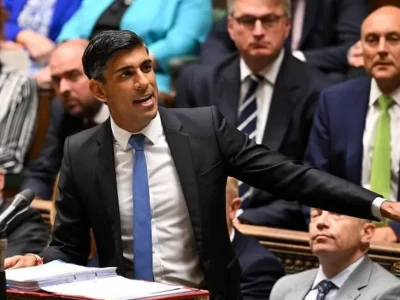British Airways is to cut 10,300 more short-haul flights due to feature in its schedule between August and the end of October. This latest announcement means nearly 30,000 flights will have been removed from BA’s schedule between April and October this year. The cancellations affect London Heathrow, Gatwick and City airports. The industry has struggled with staff shortages as demand for air travel has rebounded after Covid restrictions.
“The whole aviation industry continues to face significant challenges and we’re completely focused on building resilience into our operation to give customers the certainty they deserve,” BA said. Rory Boland, editor of Which? Travel said the latest cancellations were a “damning indictment” of BA’s failure to manage its summer flight schedule. “BA has continued to promote and sell flights it could not fulfil, even as thousands of customers have faced the chaos of cancellations in recent weeks,” he said.

These flight cancellations come for an amnesty to give airlines a short window to hand back, without facing the usual penalty, any airport slots in the summer season they are not confident they will be able to operate. The intention is to reduce the chances of disruption and late-notice cancellations over the summer by making schedules more resilient. Airport slots provide airlines with the authorisation to take off or land at a specified time on a specified day. In usual circumstances, the carriers would risk losing the slots – and taking a hit to their business – if they cancel flights.
Ryanair said in a statement that it was against the amnesty, blaming other airlines for the situation they found themselves in. “We do not support this latest slot waiver regulation from the UK government, which has been handed out for the benefit of airlines who failed to adequately prepare for the return of air travel post-Covid,” the statement said. “These slot waivers will lead to fewer flights and reduced connectivity, which will ultimately harm competition and lead to higher fares for hard-pressed UK consumers,” it said.
Ryanair added that it was operating its full flight schedule this summer, with no disruptions due to staffing shortages. But BA said the new flexibility offered by the amnesty meant it could “further reduce our schedule and consolidate some of our quieter services so that we can protect as many of our holiday flights as possible”.
“While most of our flights are unaffected and the majority of customers will get away as planned, we don’t underestimate the impact this will have and we’re doing everything we can to get their travel plans back on track,” the airline said. The advance notice means passengers have a chance of re-booking or a refund, and the point is to reduce last-minute disruptions over the next few months. Still, hundreds of thousands of passengers’ plans will be disrupted.
Long-haul flights are unaffected by Wednesday’s announcement. BA said it was contacting customers with the offer of a full refund or rebooking with BA or another airline. But the news of cancellations triggered an influx of calls to the company. “We’re experiencing high call volumes due to current disruption. We’ll contact you if your flight has been cancelled,” the airline tweeted.
Airport slot amnesty
BA isn’t the only airline to be forced to cancel flights over the busy summer period amid industry-wide disruption. It is understood that EasyJet has been forced to cancel some 10,000 flights between July and September, in a bid to minimise disruption caused by a shortage of staff. The entire aviation sector has struggled to bounce back from the pandemic, during which it cut thousands of jobs as the industry ground to a halt. Now that travel has resumed, airlines are seeking to put on almost as many flights as they did before Covid, while finding it difficult to rehire workers.

Airlines were expected to announce a wave of cancellations this week ahead of Friday’s airport slot amnesty. Ministers told carriers to review their plans after travel chaos in May, blamed on a shortage of airline and airport staff. BA said the move would help provide “certainty” to customers. Which? Travel has said it reported BA to the Civil Aviation Authority (CAA) for neglecting to tell passengers about their right to compensation and failing to reroute customers at the earliest opportunity. Rory Boland from Which? said: “The CAA must take action if BA fails to meet its legal obligations amid this latest round of cancellations.”
![]()





